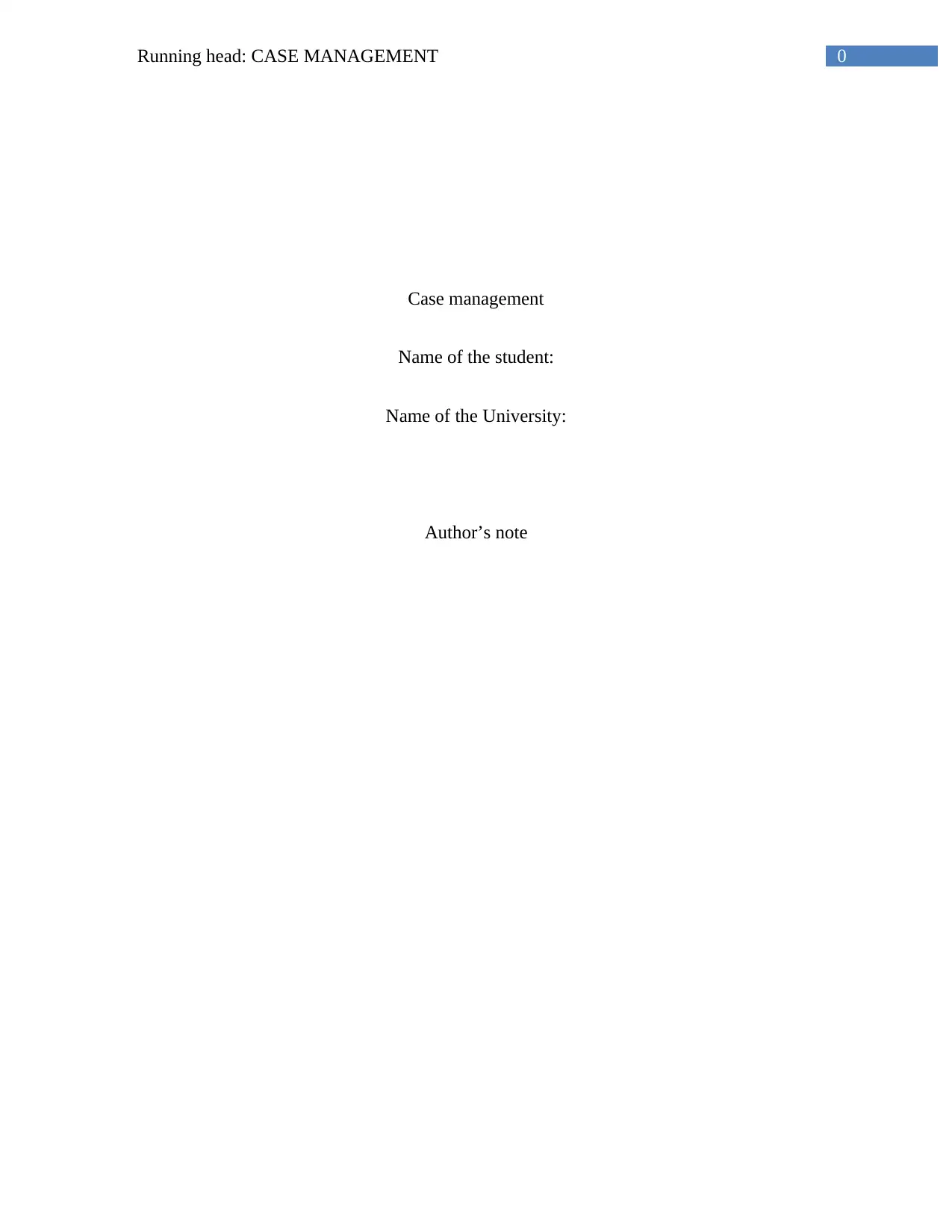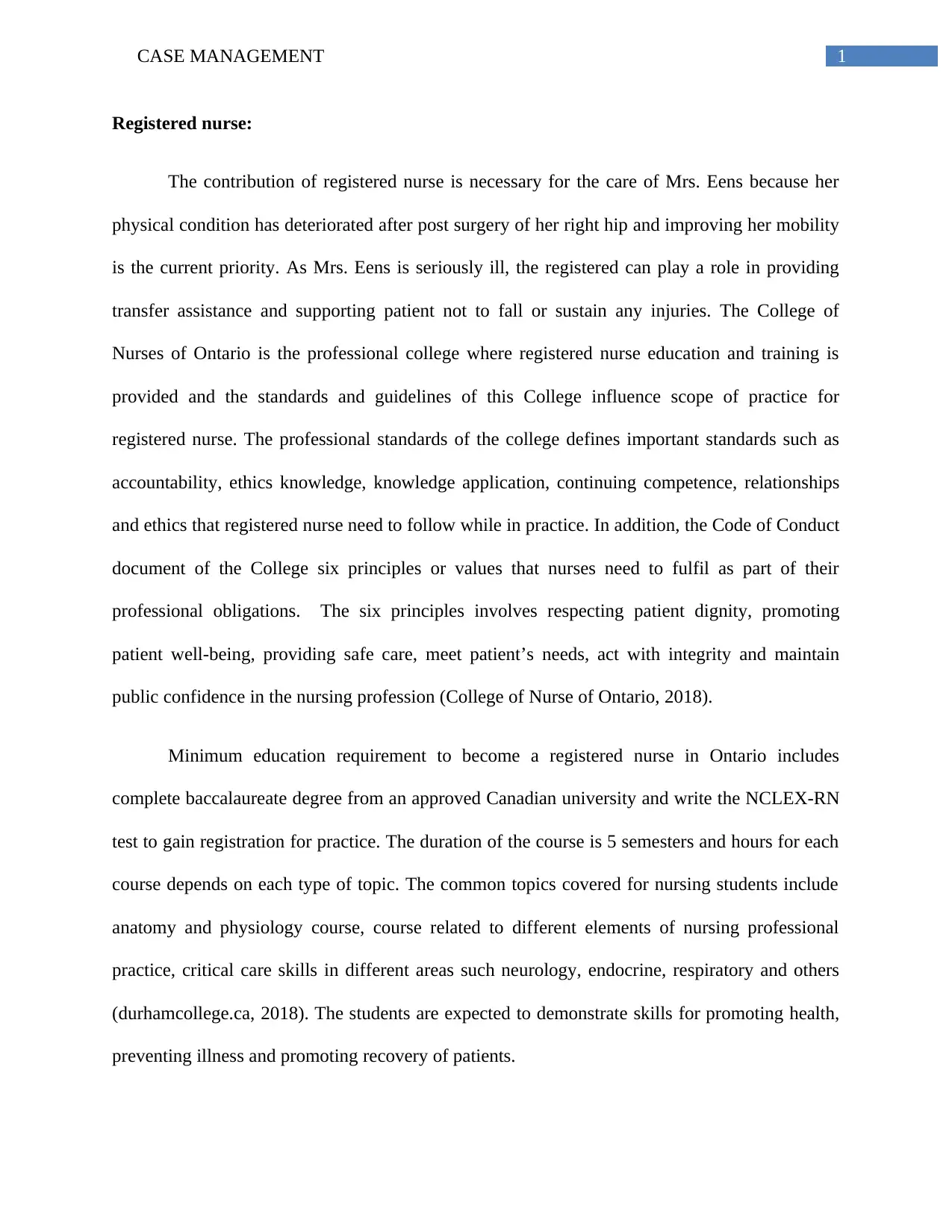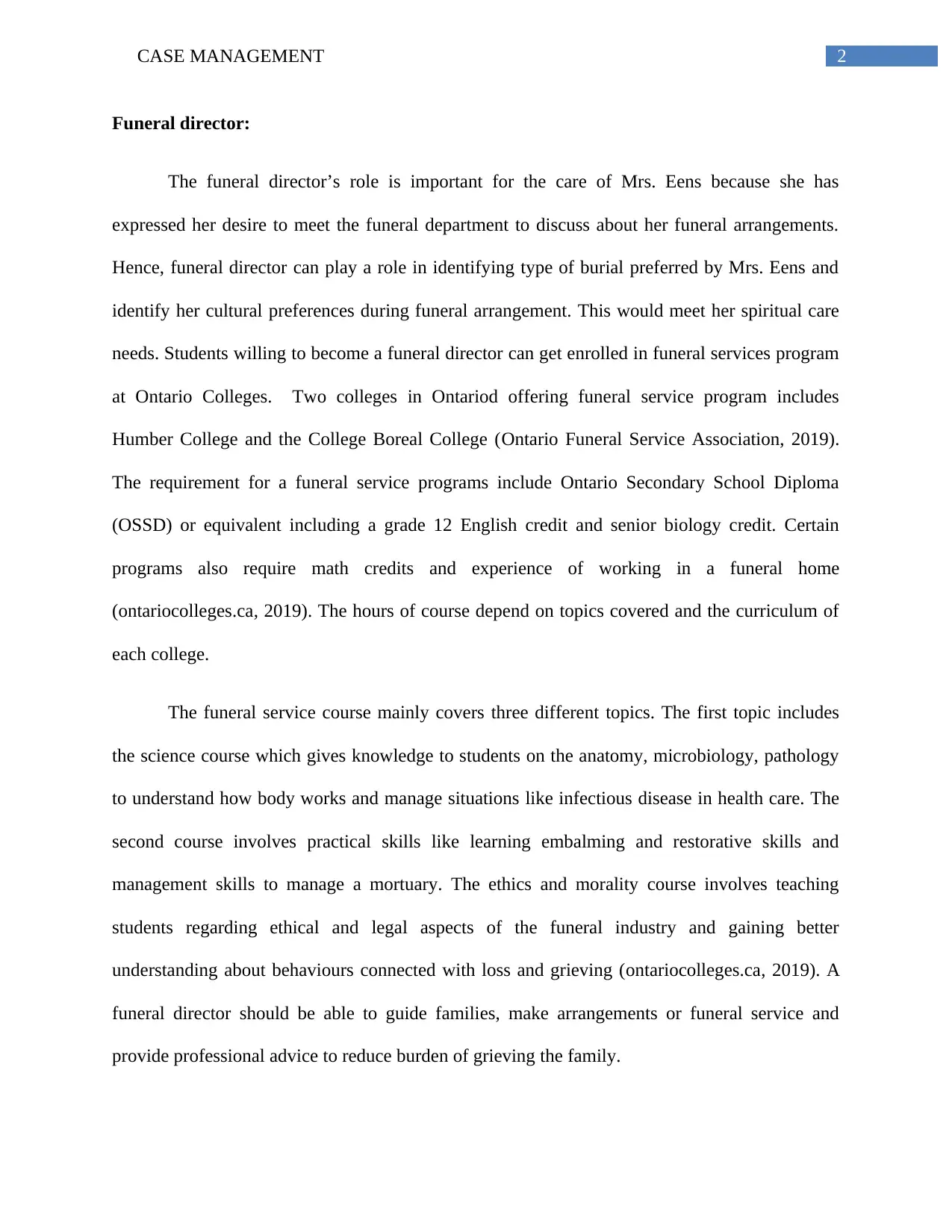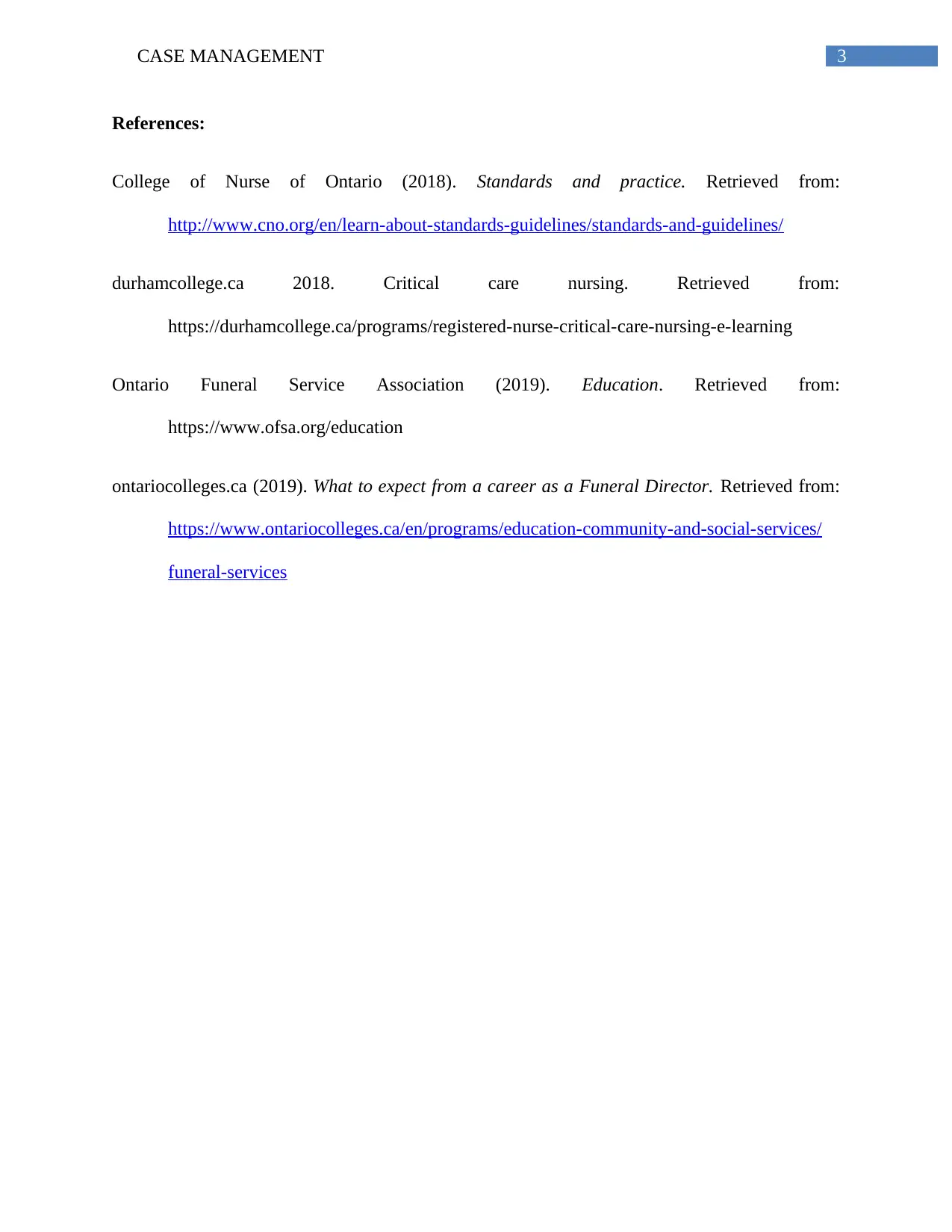Case Study: Interprofessional Roles in Mrs. Eens's Case Management
VerifiedAdded on 2023/05/29
|4
|721
|164
Case Study
AI Summary
This case study examines the roles of a registered nurse and a funeral director in the case management of Mrs. Eens, a 74-year-old woman recovering from hip surgery and dealing with post-operative complications. The registered nurse's role focuses on improving Mrs. Eens's mobility, preventing falls, and providing essential physical care, guided by the College of Nurses of Ontario standards and ethical principles which includes patient dignity, safety and well-being. Becoming a registered nurse in Ontario requires a baccalaureate degree and passing the NCLEX-RN exam, with curriculum covering anatomy, physiology, and critical care skills. The funeral director's role addresses Mrs. Eens's spiritual needs by discussing funeral arrangements and cultural preferences. Funeral director programs in Ontario colleges cover science, practical mortuary skills, and ethics, preparing them to guide families and provide professional advice during grieving. The case study emphasizes the importance of interprofessional collaboration in addressing the holistic needs of patients.
1 out of 4











![[object Object]](/_next/static/media/star-bottom.7253800d.svg)